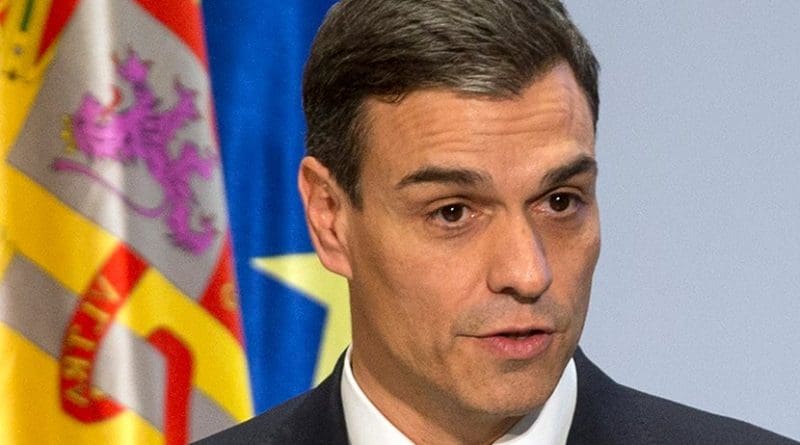Spain: PM Sanchez Says Necessary ‘To Ring-Fence’ The Welfare State
Spain’s Prime Minister Pedro Sánchez appeared last Friday before the media, following the Council of Ministers, to take stock of the agreements adopted, and to explain his government’s priorities for this legislature.
Sánchez said he believes it is necessary “to ring-fence” the Welfare State with measures to guarantee education, healthcare, pensions and long-term care. These are fundamental cornerstones on which the government is working. The Prime Minister reiterated the approval of the Royal Decree on grants and study aids, which provides for students of the most needy families and for the children of victims of gender-based violence, as well as the recovery of universal healthcare and the approval of the VECA Programme to guarantee food, leisure and the well-being of children at risk of poverty.
As regards gender-based violence, Sánchez announced the approval of a Royal Decree-Law to develop the State Pact approved a year ago in the Lower House of Parliament.
For Sánchez, the vote of no confidence and subsequent formation of the government have led to a “change of era”, reflected in the agenda for change announced in his appearance in the Lower House of Parliament and which covers the consolidation of economic growth and job creation, progress on social cohesion and equality, strengthening territorial cohesion and Spain’s role on the international stage and in the European Union. Sánchez stressed that the people of Spain have a government that represents them and that represents a progressive, open and plural Spain.
Sánchez stressed the importance of European countries finding a common response to migratory flows and announced the creation of a single operational commander for cooperation between the State law enforcement agencies in the area of the Strait of Gibraltar. This single commander will centralize actions related to these flows pursuant to prevailing national and international legislation, which seek to protect lives and the dignity of migrants.
According to the Spanish Prime Minister, two of the main challenges facing the European Union are completing the Monetary Union and the creation of a social pillar, with five major guidelines under discussion related to labor improvements, which should be set in motion before the end of the year.
Economic agenda
In his speech, Sánchez underlined another of his government’s goals: the consolidation of growth and job creation. In this regard, he took stock of the economic forecast that point to growth in our country above the European Union average, with the creation of some 450,000 jobs before the end of the year.
Growth, competitiveness, investment, exports and confidence, as well as backing for wage rises, are the main goals of this legislature. Sánchez stressed the recent approval at the Council of Ministers of the Master Plan for Dignified Work and announced the approval a Royal Decree to combat the figure of fake independent contractors and of another Royal Decree that will provide cover to workers, particularly unemployed female workers, who no longer sign up to the extraordinary Employment Activation Programme.
As regards public employment, Sánchez referred to the approval of wage rises and the largest public employment offer of the last decade. On environmental matters, Sánchez stressed the government’s special commitment to tying in growth to ecology, which lays the foundations for self-consumption, renewable energies and a commitment to the 2030 Agenda.

